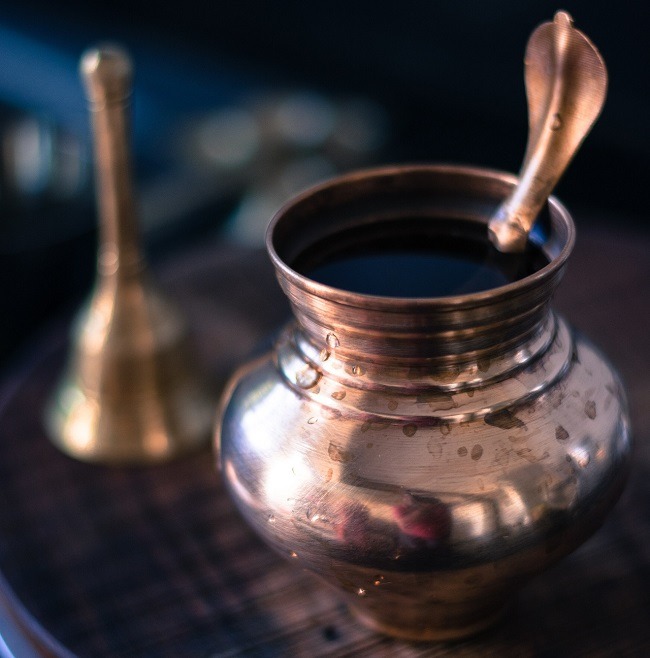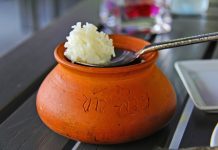Water has always held a significant place in Hinduism. From the holy rivers to the small pots of water kept in the homes, water is considered sacred and essential for every ritual. In the same way, water holds an essential place in the Pooja room, where we perform the daily worship of our Gods. There are various reasons behind keeping water in the Pooja room or God’s room. Let us delve deeper into the significance of water in the Pooja room.
Sanctity of Water
Water is used to anoint the deity before the Pooja, and we sprinkle it on the place of worship to purify it. Hence, a vessel of water is kept in the Pooja room for this purpose. This water is considered sacred, and it is believed that it removes impurities and negativity from the surroundings.
Varuna Deva
In Hindu mythology, it is believed that Lord Varuna, the God of water and oceans, is situated in the form of water. In the same way, Gurudeva is present in the form of the Garuda bell. Water is worshipped in the form of Varuna Deva, and hence, it is kept in the Pooja room to please him. It is believed that Varuna Deva protects the world and brings prosperity to the household.
Tulsi Water
Tulsi leaves are placed in the water kept in the Pooja room or God’s room to make it pure and holy. When we purify the place of worship, the Gods become pleased. Achamana, which is the process of sipping water before the Pooja, is also performed with this Tulsi water. Tulsi is known for its medicinal properties, and it is believed that drinking Tulsi water purifies the body and mind.
Naivedya
After the daily Pooja, we offer Naivedya, which is the prasad offered to the deity. It is mandatory to use Naivedya in the Pooja, and it brings sweetness and simplicity to our lives. The Naivedya is offered with fruits, sweets, seeds, and Panchamrit. After offering Naivedya, water is placed in the God’s room to offer it to the deity. It is believed that offering water to the deity after Naivedya brings prosperity to the household.
Water Installation
Placing water in the God’s room or in the north and northeast corner of the house is considered auspicious. A vessel of water is kept in the God’s room to spread positive energy in the surroundings. Keeping water in a copper vessel is considered even more auspicious. It is believed that copper vessels purify the water and have health benefits.
Aarti
During Aarti, water is added to the plate to cool it down. After this, water is sprinkled in all four directions and on all individuals present there. Charanamrita, which is the water used to wash the feet of the deity, is also offered to all. This water is considered sacred and is believed to have medicinal properties.
In conclusion, water is an essential element in Hindu worship, and it holds a significant place in the Pooja room. From the sanctity of water to the worship of Varuna Deva, there are various reasons behind keeping water in the God’s room. It is believed that water purifies the surroundings and brings prosperity to the household. The small pot of water kept in the Pooja room reminds us of the importance of water in our lives and the significance of purity and sanctity in worship.




























































